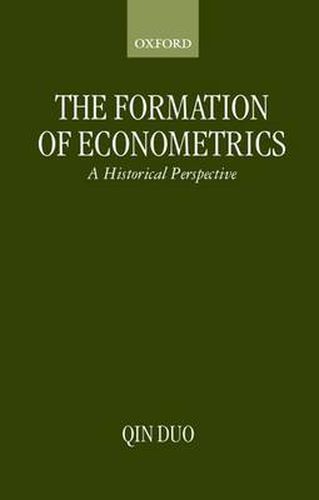Readings Newsletter
Become a Readings Member to make your shopping experience even easier.
Sign in or sign up for free!
You’re not far away from qualifying for FREE standard shipping within Australia
You’ve qualified for FREE standard shipping within Australia
The cart is loading…






Duo Qin has provided a scholarly study of a crucial period in the history of econometrics. She traces the formation of econometric theory during the period 1930-1960, and focuses on the formalization of mathematical and scientific processes to analyse economic problems. This book deals with the advances made in the practice of econometrics as a discipline, in terms of the basic issues is econometric modelling: the probability of foundations, estimations, identification, testing, and model construction and specification. Duo Qin argues that, while the probability revolution in econometrics in the early 1940s laid the basis for the systematization of econometric theory, it was actually an incomplete revolution, and its incompleteness underlay various problems and failures that occurred in applying the newly eastablished theory to modelling practice. Model construction and hypothesis testing remained problematic because the basic problem of induction in econometrics was not properly formalized and solved. The book thus links early econometric history with many issues of interest to contemporary developments in econometrics.
$9.00 standard shipping within Australia
FREE standard shipping within Australia for orders over $100.00
Express & International shipping calculated at checkout
Duo Qin has provided a scholarly study of a crucial period in the history of econometrics. She traces the formation of econometric theory during the period 1930-1960, and focuses on the formalization of mathematical and scientific processes to analyse economic problems. This book deals with the advances made in the practice of econometrics as a discipline, in terms of the basic issues is econometric modelling: the probability of foundations, estimations, identification, testing, and model construction and specification. Duo Qin argues that, while the probability revolution in econometrics in the early 1940s laid the basis for the systematization of econometric theory, it was actually an incomplete revolution, and its incompleteness underlay various problems and failures that occurred in applying the newly eastablished theory to modelling practice. Model construction and hypothesis testing remained problematic because the basic problem of induction in econometrics was not properly formalized and solved. The book thus links early econometric history with many issues of interest to contemporary developments in econometrics.